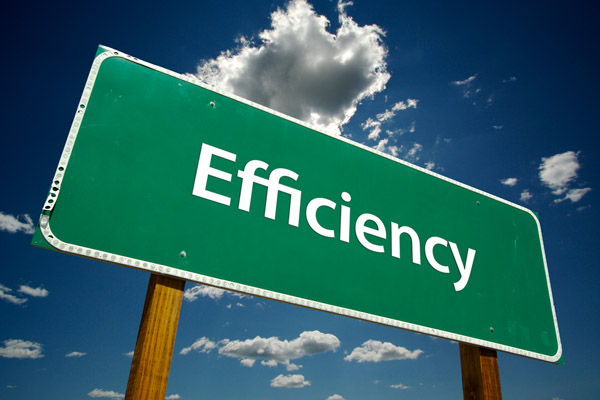Contents

The Seasonal Energy Efficiency Ratio or SEER rating is an essential factor when selecting an air conditioning system. It tells us how efficient the unit is when it comes to how much power it consumes and the indoor comfort it provides. The U.S. Energy Information Administration (EIA) recommends that HVAC systems for residential use should have a 14-SEER rating or higher. However, keep in mind that different U.S. states require different SEER ratings. In this article, we discuss more on this topic.
What Does An Air Conditioner’s SEER Rating Actually Mean?
The air conditioner SEER rating measures the HVAC unit’s cooling output parallel to the total annual energy consumption. The rating is usually from 13 to 21, with the system’s efficiency level increasing as the SEER rating gets higher.
Why Is An Air Conditioner’s SEER Rating Important?

You must know the air conditioner’s SEER rating before installation. This is because having the unit with the right SEER rating for your home means you’ll receive the following benefits:
- Lower cooling costs – Highly efficient air conditioning systems achieve the target temperatures of your home while consuming less power. Therefore, having the correct SEER rating means you can have reduced energy bills.
- Better comfort – HVAC experts say that a well-operational air conditioner that cools at 10 degrees Fahrenheit can cool a four-bedroom house in three hours. This also depends on your air conditioner’s age and size, but having the right SEER rating will ensure you receive the comfort you need and deserve at home.
- Eco-friendly cooling – Air conditioners that do their job while consuming less power means they generate fewer greenhouse gases. Therefore, having a high SEER rating ensures eco-friendlier cooling.
What Is A Good SEER Rating?
An air conditioner has a good SEER rating if it is at 14 or higher. However, what is needed is to find the best rating that fits your home’s needs. Various factors are considered to determine this, including the structure’s size, the occupants’ cooling needs, and the energy consumption rate you prefer.
Bear in mind that a high SEER rating means the unit is highly efficient. An HVAC unit’s efficiency level is mainly dependent on the home’s size. Therefore, consult a professional HVAC technician to know the correct SEER rating for your home. After all, a two-bedroom home might only need an air conditioner with a 14 SEER rating, but a four-bedroom house will need one with a higher SEER rating to cool it effectively and efficiently.
How SEER Rating Is Calculated
To calculate the SEER rating of a cooling system, you need to divide the total cooling output of the year by the total electric energy input. You can get the cooling output by multiplying the British Thermal Unit per hour (BTU/h) by the cooling hours per day. Next, multiply it by the number of days the cooling system worked in the year. This equation is exemplified below:
5,000 BTU/h x 12 cooling hours per day x 180 days per year = 10,800,000 BTUs per year.
Divide this by your total energy consumption for the year. For instance, if it is 700,000Wh, your SEER rating will be 10,800,000/700,000 = 15.4 SEER
How To Find A SEER Rating On An AC Unit
As per the U.S. Department of Energy, HVAC manufacturers are required to put the SEER rating on their air conditioners. They also need to place the Energy Star label on all qualified systems. Therefore, when you are looking for the SEER rating on your system, look for a yellow and black sticker that’s typically at the side of the condenser unit. This sticker should be where the unit’s SEER rating is clearly indicated.
You can also find the SEER rating by checking the air handler. If these two options are not helpful, find the air conditioner’s manufacturer, model number, and serial number. You can use these to look up the HVAC system online instead. You can also call the manufacturer to ask.
Do not hesitate to consult your local, trusted HVAC contractor to help you as well. Otherwise, finding the SEER rating on your air conditioning system shouldn’t be hard unless it wasn’t labeled correctly.
What Are Mismatched Cooling Systems?

Having an air conditioning system that operates optimally means that the condenser unit and air handler match. This is why manufacturers design air handlers that are compatible only with specific condensers. Therefore, HVAC technicians should always install matching air handlers and condensers. The bad news is that this is not always the case, especially if you have an inexperienced contractor doing the installation.
The air conditioner’s size should also match your home. It shouldn’t be too large or too small for your home. Otherwise, you’ll also have a mismatched system in your hands. An oversized air conditioning system will short cycle. This means that the unit can cool your home, but the cycles do not run long enough to remove the excess moisture in the air. It also does not filter the air sufficiently. As a result, you feel sticky and uncomfortable while breathing in poor indoor air quality. Short cycles mean that your system repeatedly turns on and off as well. This consumes more energy, so there will be an increase in your energy bills.
On the other hand, an undersized system will operate with long cycles. This will overwork the unit, leading to faster wear and tear, frequent repairs, and premature breakdown. You also end up paying for high power costs.
A mismatched system will have a detrimental effect on your HVAC’s efficiency even though it might have a high SEER rating. You must ensure that the HVAC installer you hire understands this. Talk to a qualified HVAC technician to avoid having a mismatched cooling system in your home.
Other Factors To Consider When Choosing A Cooling System
The SEER rating is important, but you should also consider these factors when you are on the lookout for the correct air conditioning system for your home:
- AC Unit Size – Systems that are too small or too large for the homes they are installed in will use more power in their day-to-day operations.
- Air Conditioner Price – Make sure to follow your set budget when buying an air conditioner.
- Noise – Air conditioners that have low-efficiency levels are noisier because they tend to overwork.
- Air Conditioner Warranty – This will help you get your system repaired or replaced when it does not work as it should.
Conclusion
An air conditioner with a good SEER rating means you enjoy high efficiency and low energy costs. An Energy Star certification can also help lower your energy bills even further while allowing you to have a more environment-friendly home. Contact a professional for all your HVAC concerns. An expert HVAC technician can assist you in finding the most suitable system for your home.
Call Tevis Energy For All Of Your HVAC Requirements

Tevis Energy provides high-quality HVAC services in central Maryland and southern Pennsylvania. Rest assured, our company only has the best professionally certified technicians to ensure superior heating and cooling services at all times. Each of our techs is skilled, knowledgeable, and experienced in conducting correct tune-ups, installations, repairs, and replacements on any HVAC system.
Our company offers one of the most affordable and competitive HVAC service rates in the area. If you want to improve your home’s comfort and energy efficiency, our maintenance services can help you. If you need heating and cooling repair or replacement solutions, we can recommend the best ones that are within your budget. To ensure your satisfaction, all our works are backed with a guarantee. Book your next service appointment with us today. Call Tevis Energy for a free, in-home estimate.
You can click here to contact us now or call us at (410) 876-6800 to find out more!
Posted in Blog
Tags: air conditioning seer rating, difference in seer rating, highest seer rating, minimum seer rating, seer air condiitoner efficiency rating, seer calculation, seer efficiency rating, seer rating definition, seer ratings explained, what is a good seer rating, what seer rating should i buy